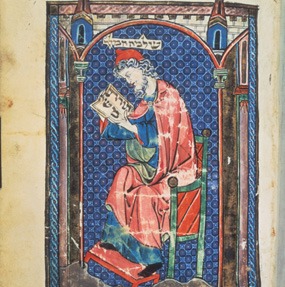
Natasha, a literature and language teacher in a high school in Karachi, has had more than her fair share of challenges. She regularly gives pastoral care to her students, and once prevented an all-out war between rival clans of teenage boys in the school corridor. But now she believes she is facing her biggest challenge yet. Over the past year in particular, even the most mundane of her classes have seen heated debates escalate into highly vicious personal attacks. Male teenage students have called Natasha a “whore” and a “feminist Nazi”. Female students, the targets of similar attacks, feel so humiliated that they regularly miss class. One student has stopped coming into school for the past four months.
Natasha’s descriptions of her classroom aren’t atypical. Indeed, they provide an acute insight into a growing problem around the world – namely, the proliferation of hyper-aggressive misogynistic online content, known colloquially online as the “Red Pill”. It’s a term you may have initially heard in the 1999 sci-fi film The Matrix. The protagonist, a computer hacker named Neo, discovers through taking the Red Pill that the world he lives in is a computer simulation. In the mid-2000s, the term was appropriated by “pick-up artists”.
These days, “becoming redpilled” is less related to seducing women, and much more likely to be to do with right-wing politics – in particular, a belief in the damaging falsity of liberalism, modernity and equality politics. And it only takes a few scrolls on social media to find one character at the forefront of this so-called “Red Pill movement”: balding, burly, often seen in a tight blazer jacket and, regardless of the weather, always wearing sunglasses.
By now, even people with minimal exposure to internet culture will have heard of Andrew Tate. The 36-year-old former professional kickboxer and reality TV contestant was, until he was banned in the summer of 2022, one of the most popular influencers on TikTok. He is currently under house arrest in Romania while prosecutors investigate him over allegations of rape and human trafficking, which he denies.
His videos showcased his life of opulence, including tours of his remarkably empty mansion on the outskirts of Bucharest. The videos that really went viral were those that gave “life advice” to the growing number of young men wanting to imitate him. Some of these show him staring down a camera, telling young men to “stop being lazy” and go to the gym, or provide esoteric advice, such as espousing the health benefits of caffeine and cigarettes.
But other videos take a significantly darker turn. In one, he answers a question about how to respond to a partner’s accusation of infidelity by saying: “Bang out the machete, boom in her face and grip her by the neck. Shut up, bitch.” In others, he has made statements about women being the “property” of men while in relationships. This sort of content has led to Tate’s account being banned from most social media networks, including Meta and TikTok. But it’s also driven his global popularity. His fans often reproduce his content on their own social media channels. They also translate his videos into different languages.
The conversion to Islam
I came across Natasha on a Facebook group for young teachers. The group, set up in 2013, aimed to give advice to new teachers, and share resources like worksheets and lesson plans. Now, the group is overwhelmed by how to deal with the impacts of content made by Tate and his copycats. Teachers in the group, based around the world, share stories of arguments – even physical fights – that have occurred because of misogynistic online content, or recall stories of promising students slowly becoming radicalised.
Teachers are unsure how, or even if, they can intervene. Many express concerns about their female students, whom they have seen lose confidence in the classroom, and who are often afraid of expressing any opinion that might be deemed feminist.
One teacher recently commented that the intrusion of Red Pill content has even made the process of giving out assignments difficult: “I asked my students to write an essay about wages and inflation,” the high school economics teacher from Toronto wrote earlier this year. “The student gave me back an essay on why women earn more money than men and why the ‘wage gap’ was fake. He then accused me of politically disagreeing with him when he was given a low score.”
Feelings of persecution and victimhood are central components of Red Pill content online, suggests Annie Kelly, a UK-based researcher specialising in far-right digital cultures and a co-host of the podcast QAnon Anonymous. In Tate’s online life-improvement course, Hustler’s University, “Tate pioneered a ‘post-deplatforming’ social media strategy”, Kelly explains – one which is difficult to regulate. Even if Tate was banned from all social media platforms, his course provides financial incentives to subscribers to reproduce and share his online content, from podcasts to video, promising that this will bring them advertising revenue. Couple that with far fewer moderation policies on these platforms in the non-western world, and it’s clear how Tate’s message has spread so rapidly.
At the same time, Tate’s global reach has also had an impact on him. A couple of months before he was arrested, Tate converted to Islam. This was a shock to some of his most ardent supporters in the west, particularly right-wing figures including Tommy Robinson, formerly the leader of the English Defence League. Others who expressed disappointment were Christian ethno-nationalists, who believed that Muslims, and other ethnic and sexual minorities, were destroying the west. But the move was perhaps not as surprising as it first might have seemed. By converting to Islam, facilitated by well-known conservative Muslim influencers Mohammed Hijab and Ali Dawah, Tate had opened up the online Red Pill movement to non-white and non-western people, giving them space in a movement that once saw Muslims, along with feminists, as their ideological enemies.
Tate had expressed his interest in Islam for months prior to his conversion, sparked by his growing fanbase of Muslims, frequent trips to Dubai, and his assertion that conservative Islam was the only religion that truly embraced “traditional” values and gender roles. Kelly adds that Tate’s conversion mirrors a broader trend in religious conversion in online Red Pill communities. Notable figures such as the notorious pick-up artist Daryush Valizadeh, known as “Roosh V”, have converted to Orthodox Catholicism, in reaction to both feminism and a growing acceptance of LGBTQ+ communities in the west.
“Many of these manosphere conversion stories will themselves situate their religious awakening within this context,” Kelly says. She also notes that even after their conversion, these influencers rarely engage with theology at all. Which is one reason why Tate, even after his conversion, has fetishised Muslim women. In one video, he speaks of marrying an “Islamic-ass wife” who he’d keep next to a pile of rocks in case “she gets fresh”.
'A mix of misogyny and aspiration'
Tate’s new-found religious identity has sparked tensions between some Muslims over the legitimacy of his conversion, and whether becoming Muslim should mean that his past transgressions should be forgiven.
While most Muslim fans of Tate’s would not speak to me for this article, those that did believed that Tate’s public persona, and the bravado that came with it, should be seen as a performance, separate from his real character. As one UK-based Muslim man, Hamza, 23, said: “You have to watch enough of his videos to know which ones are serious and which ones aren’t. I can’t really explain it to anyone who hasn’t done that but you can tell. That’s why I focus on the positives – his business advice, his advice about going to the gym, about treating people properly and, now, to worship Allah. I was really happy that Allah guided him to Islam.”
Whether Tate’s conversion is legitimate or not, Natasha has noticed that among her students in Karachi, his new status as a Muslim influencer is having a clear effect. They see in Tate a religious ally in the west who “can promise them the world.” Ryan Broderick, the editor of the internet culture newsletter “Garbage Day”, notes that Tate’s fanbase is growing in other countries too, such as India and Brazil.
“His appeal is just a very simple mix of misogyny and aspiration,” Broderick says. “It’s very seductive to tell young men in the global south that hating women and mistreating them and, in Tate’s case, literally allegedly trafficking them, is the secret to a successful life. It’s classic fascism, but because it’s cloaked into a cartoonish macho man aesthetic and not directly linked to any particular politics, we don’t treat it as such.”
Natasha finds herself stuck at a crossroads. She admits that there’s a part of her that is considering leaving the teaching profession. The other part wants to fight the influence of Tate and his imitators. She and other teachers have discussed strategies to help de-radicalise students, most of which require a great deal of patience, as they try to encourage them to think about what they choose to watch on the internet. It won’t be easy, but this fight reinforces why Natasha wanted to become a teacher in the first place. “I grew up in a family where men told women they shouldn’t study. . . I was told I should stay at home and learn how to cook for my husband,” she tearfully remembers. “I will not let anyone – anyone at all – say the same thing to my students.”
This article is from New Humanist's autumn 2023 issue. Subscribe now.

